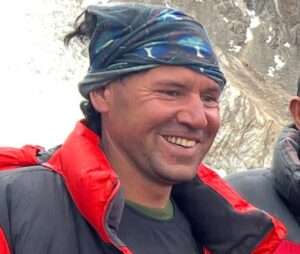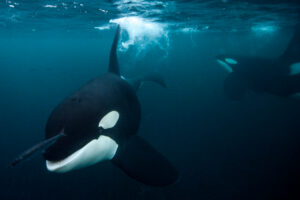After thirty minutes of driving through endless grasslands on a single lane highway, Ari turned to me. She had been silent and lost in thought. “Do you think that the concept of the hero is still relevant today? …I mean, I know they are all over comic books and movies, but do you think there are any real-live heroes in our culture that will make it into the annals of history?” I thought for a moment. “Absolutely,” I replied.
Having a background in cultural anthropology, I often think about things like this. I am also lucky enough to have friends with which to discuss my thoughts. They only think I am odd some of the time. I consider myself fortunate. I have always been interested in myth and folklore and what these stories provide us about the cultures they represent. Above all, I love the idea of cultural universals. All around the world, we are so alike. We have the same basic needs, food, water, shelter, clean air, love. I think that we forget this being wrapped up in our day to day survival and with the intervention of the mainstream media. Cultural universals remind us that the world and the people in it make up an interconnected system. That is why I chose anthropology and that is why I often sit and think about the people that are represented by the archetypes present in folklore.
The hero is a concept that humanity has marveled at for thousands of years. Cultures from all over the world have legends and myths recounting the voyages and deeds of these larger than life figures. Most notably, mythologist Joseph Campbell wrote about the hero as a cultural universal in is 1949 work The Hero with a Thousand Faces (there is good TED ed talk on the subject). In this work, Campbell describes the qualities that characterize the hero and furthermore establishes the archetypal frame for the heroic journey. This journey is portrayed in stages that exemplify a rite of passage ritual. There is present in every hero’s journey stages of separation, initiation and return. The heroic journey is not only a mythological model, it is an allegory for the patterns of “known and unknown” within our lives.
When my friend asked me about modern-day heroes, I immediately thought of explorers who, both amazingly similar and decidedly different from the god-like figures of mythology, live their lives from one unknown to the next.
According to the hero’s journey, the world of the known is one of security. It is a world that the hero often does not want to leave behind. And that is one way in which explorers differ. There is something about explorers; a personality that tells them to run towards a risky situation while all others are running away. They thrive on instability, change and the unknown. This personality type is found in explorers like Alastair Humphreys, Dian Fossey, Sir Edmund Hillary, Sylvia Earle and Mikael Strandberg. One could argue that traditional heroes possess a similar personality type, but it is seemingly innate in explorers where it often has to be brought out in a hero through the process of the journey. It is a personality such as this that instigates the separation phase of the hero’s journey but it is the initiation phase that the explorer gravitates towards.
Initiation is a time of challenges and tests and encompasses the entirety of the unknown realm. For the hero and for explorers, the initiation phase is one of growth and transformation. Each task that the hero completes improves his or her character. Likewise, the explorer learns from everything that is observed and every step that is taken. However, the realm of the unknown is a double-edged blade as often the most wonderful places are the most extreme. Even small mistakes in the realm of the unknown can be detrimental and it is often extreme circumstances that lead the explorer into the abyss.
The abyss is the ultimate challenge that the hero must conquer before the transformation and completion of the journey. In many myths and stories, the hero does this as they utilize the combined skill and knowledge of the journey up to that point. However, there are many reasons the hero might fail. If the hero is not adequately prepared or makes a mistake, they may not be able to conquer the abyss. Furthermore, and this speaks exceptionally to the explorer, the abyss often demands complete surrender to the adventure in order to succeed and experience the transformation. Often, for an explorer the transformation comes in the form of knowledge, insight, world experience or a great discovery. Whatever form it takes, it is a profound event. Even if the explorer does not realize it at the time, the transformation is often life altering.
After the transformation, the hero returns triumphant to his or her homeland and the realm of the known. It is a time of celebration and victory. For the explorer, the return is bittersweet. Often, explorers will experience post expedition blues, or post expedition syndrome. This concept was depicted in the 2009 best seller, The Lost City of Z and has been acknowledged by many modern explorers as well. It is a time of confusion and apprehension. When one has been in the realm of the unknown for so long, the known becomes unrecognizable and incites the feeling of “what now?” Although that question never fully subsides, stability does eventually return to the life of the explorer. But the realm of the unknown is enticing and the personality of the explorer will always long for a new challenge.
Even for all this talk of heroes and incredible journeys, the hero is an archetype that is present within everyone. Our ability to identify with a character is paramount to the success of a story, and it is the characteristics of the hero that are present within us that make this archetype relatable. Any good explorer will tell you that they are just a human with a thirst for knowledge and self-improvement.
“I think as time has advanced, heroes have become less about ideals and more about the goal of personal growth and pushing your limits,” I told Ari. “The modern hero is a part of all of us and is fueled by the inspiration of others who have conquered the journey and encouraged us to do the same.”






